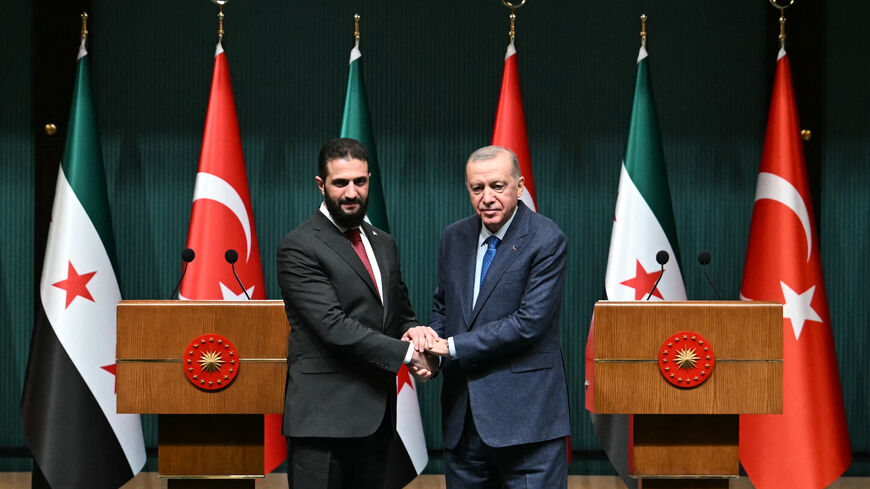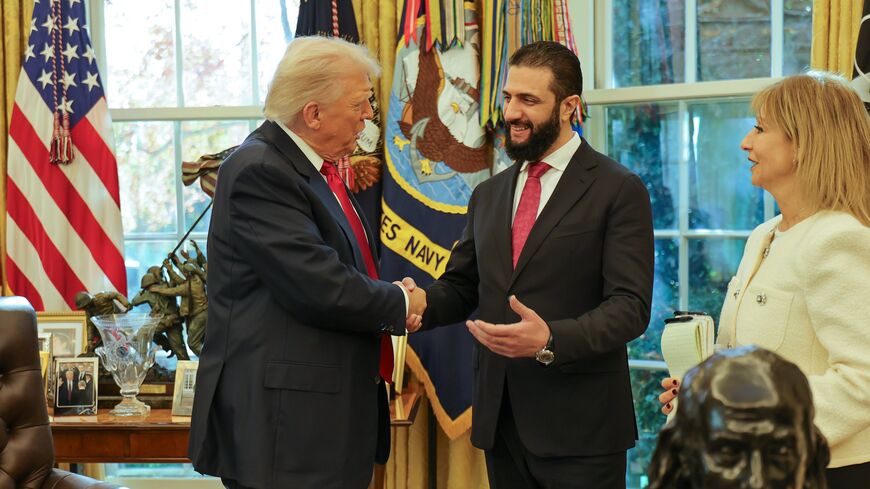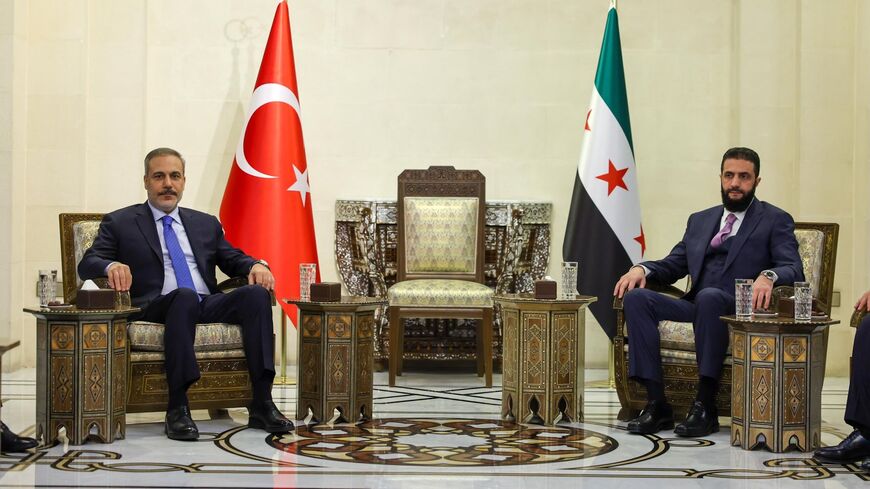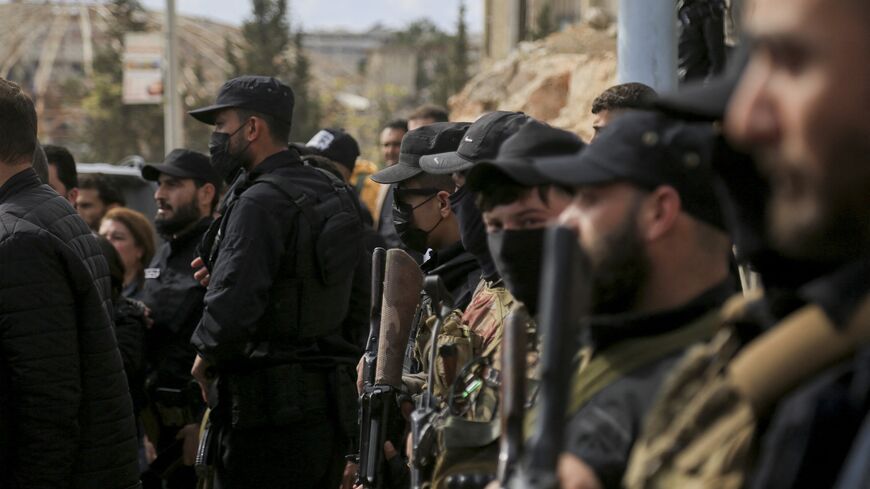Turkey’s Fidan joins Trump-Sharaa talks at White House
The Turkish foreign minister’s surprise Washington visit highlights Ankara’s growing role in shaping postwar Syria diplomacy.
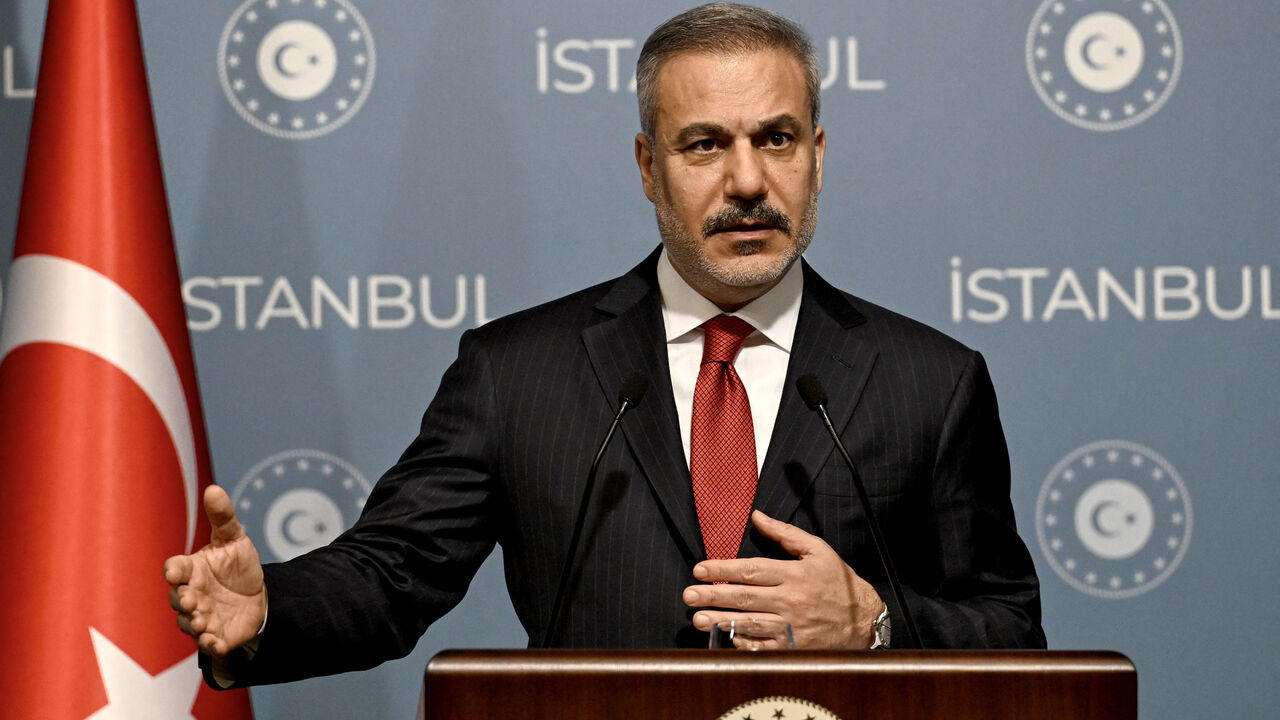
ANKARA — Turkish Foreign Minister Hakan Fidan met with his US counterpart, Marco Rubio, at the White House on Monday and joined part of Syrian President Ahmed al-Sharaa’s landmark meeting with President Donald Trump.
“At a certain point in the meeting we were invited to join,” Fidan told reporters after his White House talks, which covered Turkey’s stance on Syria, potential areas of cooperation with the United States, Syria’s reconstruction and unity, and regional security.
What happened: Fidan’s participation in the Trump–Sharaa meeting came as part of his surprise visit to Washington on Monday. Afterward, he said he also met jointly with US Secretary of State Marco Rubio and Syrian Foreign Minister Assad al-Shibani, as well as with Vice President J.D. Vance, to discuss steps to advance Syria’s security and economic development.
Why it matters: Turkish officials have kept a tight lid on Fidan’s Washington visit, an unusual approach for a high-level trip to the US capital. On Sunday, the Turkish Foreign Ministry announced the trip in a one-sentence statement, without even specifying that Fidan would be traveling to Washington.
The low-key approach aligns with Ankara’s effort to present Sharaa as an independent leader rather than a Turkish proxy, a strategy aimed at reassuring regional powers and encouraging broader engagement with Damascus.
Ankara emerged as Damascus’ closest regional ally after the fall of the Syrian regime in December. Since then, Turkey has been working to boost Sharaa’s global profile so he can consolidate power in Damascus while Ankara preserves influence over its southern neighbor.
The Sharaa-Trump talks covered issues closely related to Turkey’s security and economic interests, including Syria’s post-war reconstruction, the future of the Kurdish-led Syrian Democratic Forces and a potential US-mediated security arrangement between Israel and Syria aimed at ending Israeli strikes on Syrian territory.
Turkey considers the SDF a top national security threat, given its close ties with the Kurdistan Workers Party (PKK), which has fought for Kurdish autonomy in Turkey since 1984. Ankara seeks the SDF’s disarmament and integration into the Syrian military as part of ongoing US-led negotiations between Damascus and the Kurdish-led group.
“The two sides agreed on the importance of implementing” a deal Damascus and the SDF reached in March for the latter’s integration into the Syrian army, according to a statement by the Syrian Foreign Ministry issued after the meeting.
The SDF seeks to join the Syrian military while keeping its forces largely intact to ensure local security, whereas Damascus demands full disarmament and integration of SDF fighters as individuals to reassert central government control.
Ankara, in turn, sees the SDF’s disarmament as vital for the success of the ongoing peace talks between the PKK and the Turkish government that involve the outlawed group disbanding and disarming.
The US is also mediating between Syria and Israel to halt Israeli strikes. Israel remains wary of growing Ankara-Damascus ties, particularly Turkish influence over Syrian military coordination, but a thaw in relations could facilitate Turkish-Syrian military cooperation and ease regional tensions.
“The American side also affirmed its support for the security arrangement with Israel,” the Syrian Foreign Ministry statement said.
Know more: Fidan’s stopover also comes amid renewed Gaza diplomacy as Washington-led efforts move toward the second phase of Trump’s ceasefire plan. US officials circulated a draft UN Security Council resolution last week calling for a two-year mandate for a transitional governing body and an International Stabilization Force authorized to “use all necessary measures” to demilitarize Gaza, Reuters reported last week.
Fidan on Monday said he held separate talks with Trump’s Middle East envoy Steve Witkoff to discuss the ceasefire process in Gaza.
Turkey and Arab partners are seeking language that frames the ISF strictly as a peacekeeping mission, wary that enforcement could trigger clashes with Hamas or Israeli forces. Israel has opposed Turkish troop deployment, while US officials push for Ankara’s involvement. On Sunday, Hamas returned the remains of Hadar Goldin, an Israeli soldier killed by Hamas in 2014, after nearly 11 years. A senior Turkish official told Israeli journalist Barak Ravid that Turkey facilitated the return.
Fidan last visited Washington in September, accompanying Turkish President Recep Tayyip Erdogan.

